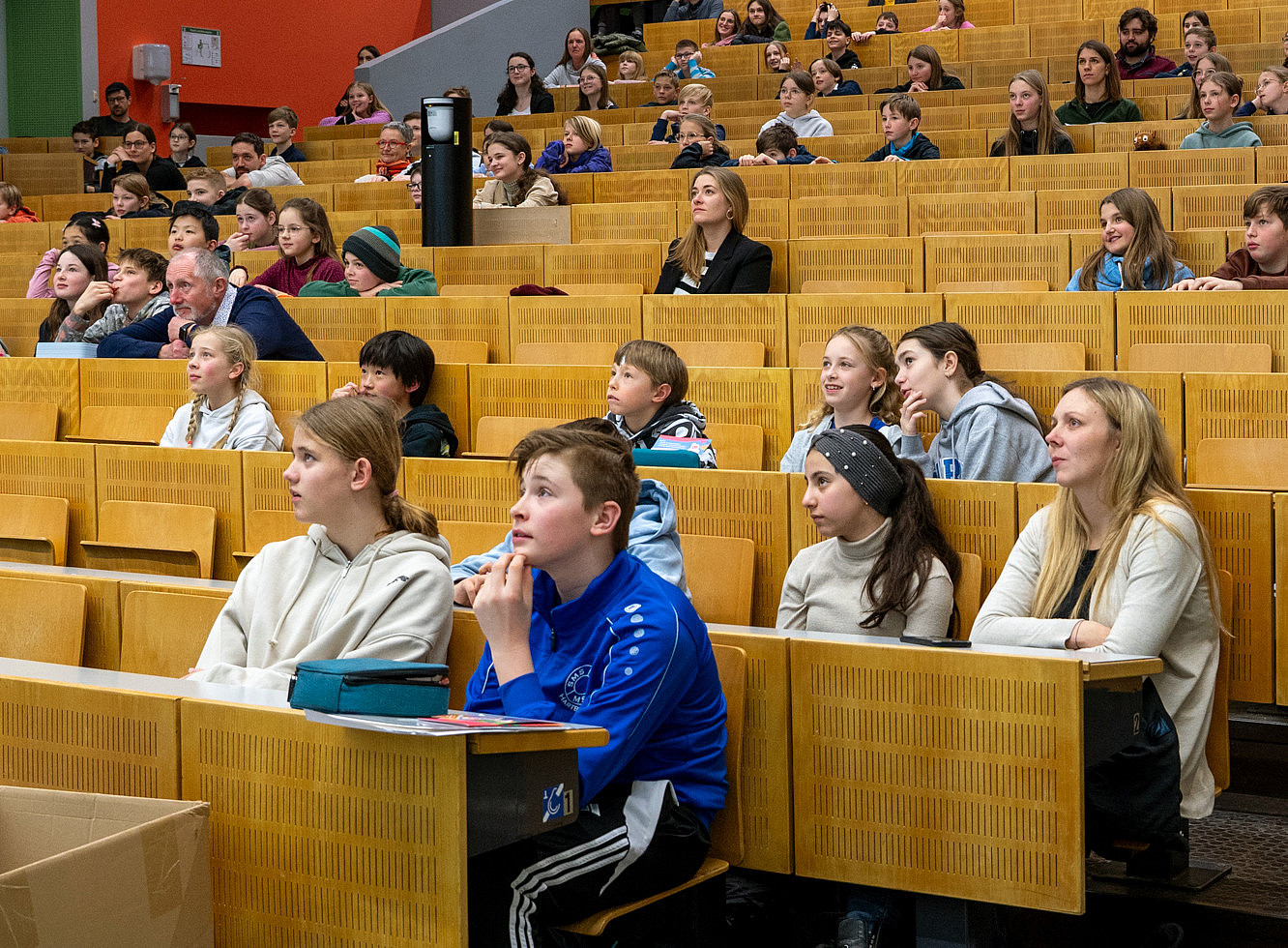Sporting ambition instead of fried brains: around 300 lower school pupils showed that arithmetic can be fun at the Maths Mix Doubles on 25 February. They competed in girl-boy duos in 20 tasks. The teams from Musikmittelschule Weiz and MS/BG/BRG Klusemannstraße in Graz scored the most points in their age group.
"Heidi Bergold and Michaela Kraker launched the competition as a mixed doubles event because they wanted to encourage girls to take part. Unfortunately, there is still a prevailing image that mathematics is difficult and more for boys," explains co-organiser Michael Fischer from the Department of Mathematics and Scientific Computing at the University of Graz. The fact alone that more than 2000 children from over 70 schools voluntarily took part in the preliminary round is a strong sign for him that the subject is better than its reputation. By focussing on fun and teamwork instead of performance pressure and grades, the initiators want to further increase the popularity of the subject. That's why they deliberately chose tasks outside the classroom. For example: The letters A, B, C, D and E each stand for one of the digits 1, 2, 3, 4 or 5. The following applies: A + A = B and C + C = A and C + B = D. Which digit does the letter E stand for?
Team challenge for teenagers
On 14 March, older students will have the opportunity to puzzle. They will be competing against Munich, Prague and Cambridge, among others, in the international Náboj competition for the advanced level of highschools. In 2024, locations from 14 countries took part.
"It's a very exciting event. The young people have to solve tasks very quickly in small groups and compete in real time with participants from other countries. The current ranking list is always displayed," reports Fischer, who will also be supervising this maths match at the University of Graz with his team.
